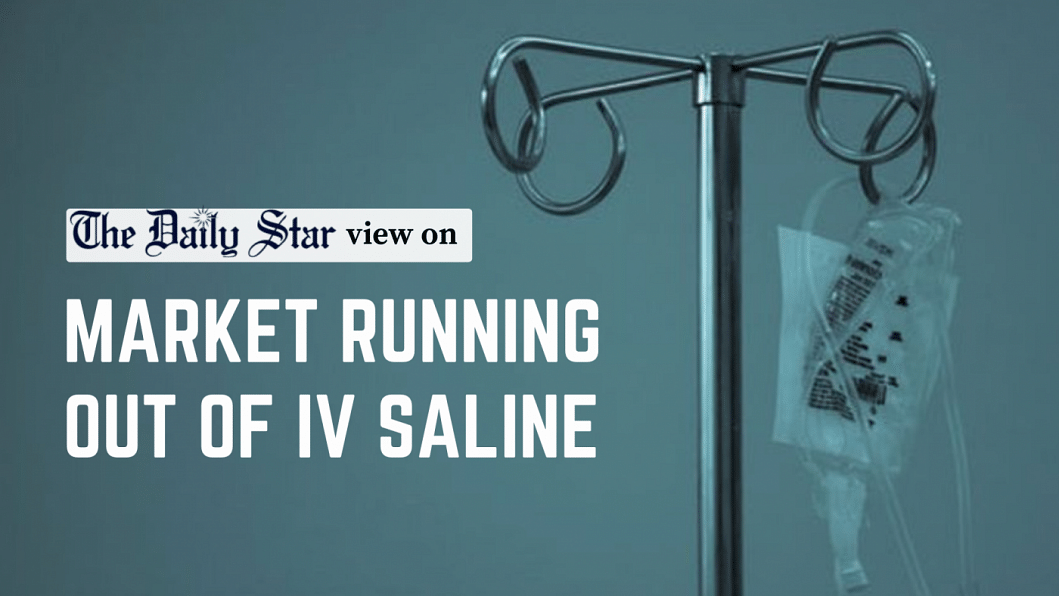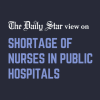Address IV saline crisis urgently

It is distressing to see how the crisis of intravenous (IV) saline, which helps maintain fluid balance in the body, has emerged as a headache for healthcare providers and dengue patients alike. This lack of an essential medicine is a problem that we could do without at a time when we are already struggling with the most severe dengue outbreak in the history of Bangladesh. Yet, thanks to a lack of timely interventions and inflated prices caused by the shortage, it has reached such a level that people in many areas have been reported to be shuttling between multiple pharmacies in search of IV saline.
The story of Khulna's Abdur Rob – a desperate father who, after failing to secure a single bag of IV saline for his ailing 13-year-old daughter at the local hospital's drug store and 14-15 other medicine shops, resorted to a middleman to manage one – is one such case that serves as a testament to the gravity of the situation. This is not an isolated incident, as our correspondents from various divisions tell us. The crisis has reached Dhaka, Chattogram, Rajshahi, Barishal, Mymensingh, Rangpur, and Sylhet as well, with the demand far outstripping available supply. Although government hospitals have received timely if rationed provisions from suppliers, it is the private hospitals and pharmacies in and outside the capital where the crisis has hit the hardest. The government has initiated plans to import two million bags of IV saline from India and also asked six drug companies to increase saline production. But this may still not be enough to make up for the shortfall.
We must stress here that the IV saline shortage is not a mere inconvenience, but a life-threatening crisis, and not just for dengue patients but cancer patients and countless others who rely on this essential medical supply. The question is, why are the authorities failing to ensure sufficient supplies? The surge in dengue cases and consequent rise in the demand for medical supplies have long been predicted by experts. Any failure to prepare accordingly or respond properly to the crisis is, therefore, unacceptable. In recent weeks, we have also highlighted how the dengue surge has been overwhelming not just hospitals, public or private, but also essential services like ICU and HDU beds, leaving patients literally gasping for air.
This must be addressed. The authorities must be able to control the spread of the dengue virus but also, equally importantly, ensure that patients get optimal care across the country. This includes greater access to healthcare facilities as well as essential medical equipment and supplies.


 For all latest news, follow The Daily Star's Google News channel.
For all latest news, follow The Daily Star's Google News channel. 









Comments